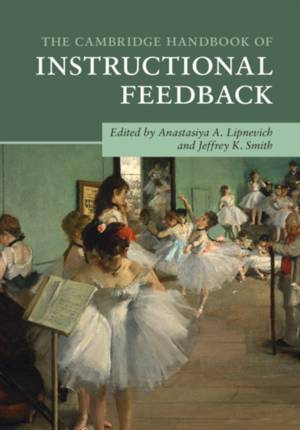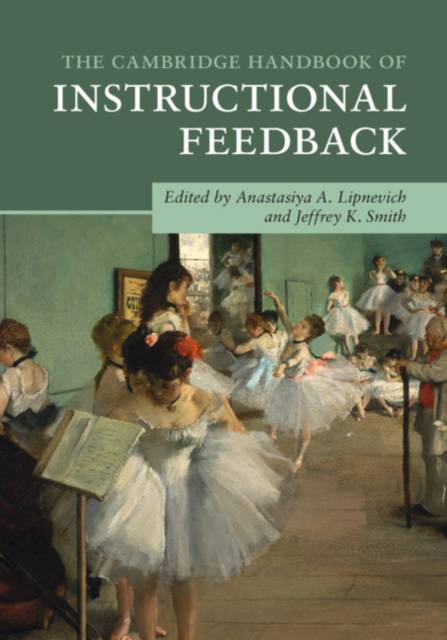
- Afhalen na 1 uur in een winkel met voorraad
- Gratis thuislevering in België vanaf € 30
- Ruim aanbod met 7 miljoen producten
- Afhalen na 1 uur in een winkel met voorraad
- Gratis thuislevering in België vanaf € 30
- Ruim aanbod met 7 miljoen producten
Zoeken
The Cambridge Handbook of Instructional Feedback
€ 100,95
+ 201 punten
Omschrijving
This book brings together leading scholars from around the world to provide their most influential thinking on instructional feedback. The chapters range from academic, in-depth reviews of the research on instructional feedback to a case study on how feedback altered the life-course of one author. Furthermore, it features critical subject areas - including mathematics, science, music, and even animal training - and focuses on working at various developmental levels of learners. The affective, non-cognitive aspects of feedback are also targeted; such as how learners react emotionally to receiving feedback. The exploration of the theoretical underpinnings of how feedback changes the course of instruction leads to practical advice on how to give such feedback effectively in a variety of diverse contexts. Anyone interested in researching instructional feedback, or providing it in their class or course, will discover why, when, and where instructional feedback is effective and how best to provide it.
Specificaties
Betrokkenen
- Uitgeverij:
Inhoud
- Aantal bladzijden:
- 648
- Taal:
- Engels
- Reeks:
Eigenschappen
- Productcode (EAN):
- 9781316631317
- Verschijningsdatum:
- 3/01/2019
- Uitvoering:
- Paperback
- Formaat:
- Trade paperback (VS)
- Afmetingen:
- 188 mm x 251 mm
- Gewicht:
- 1179 g

Alleen bij Standaard Boekhandel
+ 201 punten op je klantenkaart van Standaard Boekhandel
Beoordelingen
We publiceren alleen reviews die voldoen aan de voorwaarden voor reviews. Bekijk onze voorwaarden voor reviews.










